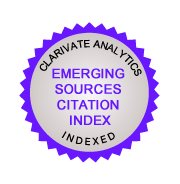Make a Submission
uumpress
Journal Information
| Publisher | UUM PRESS |
| ISSN | 2232-1608 |
| eISSN | 2180-2467 |
| Established | 2004 |
| DOI | 10.32890/ijms |
| Publishing Frequency | Biannually (January & July) |
Abstracting/Indexing

UUM Press
Universiti Utara Malaysia, 06010 UUM Sintok
Kedah Darul Aman, Malaysia
Phone: +604-928 4812 Fax : +604-928 4792 
All articles published in International Journal of Management Studies (IJMS) are licensed under a Creative Commons Attribution 4.0 International License.
Owner : SK
https://jurnal.uinsyahada.ac.id/
https://fundisa.journals.ac.za/
https://revistas.ulima.edu.pe/
https://nersmid.unmerbaya.ac.id/











